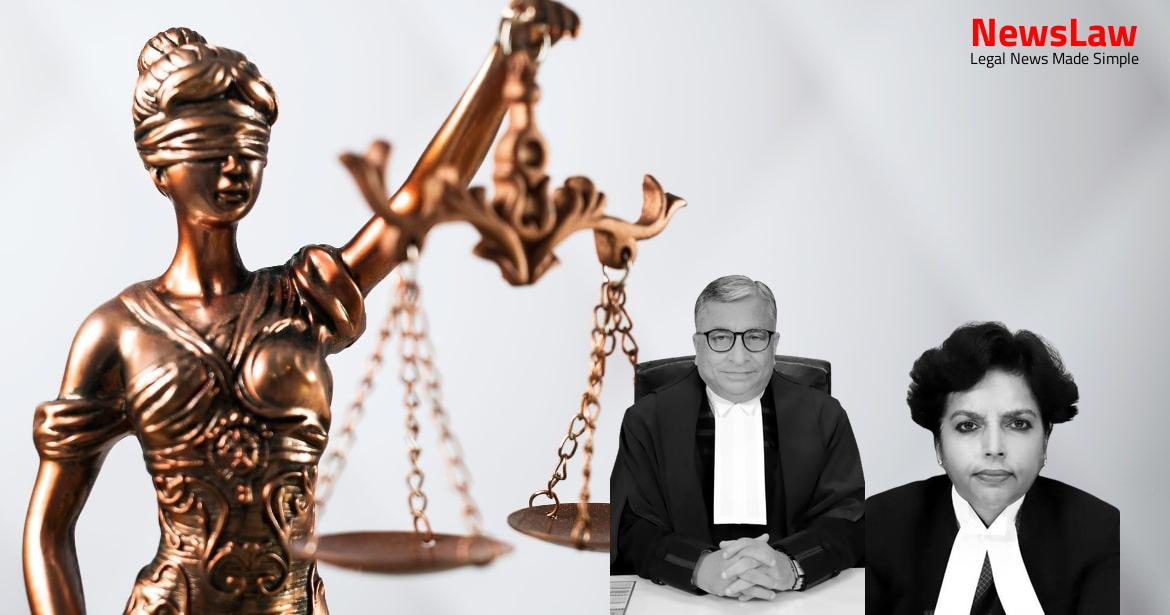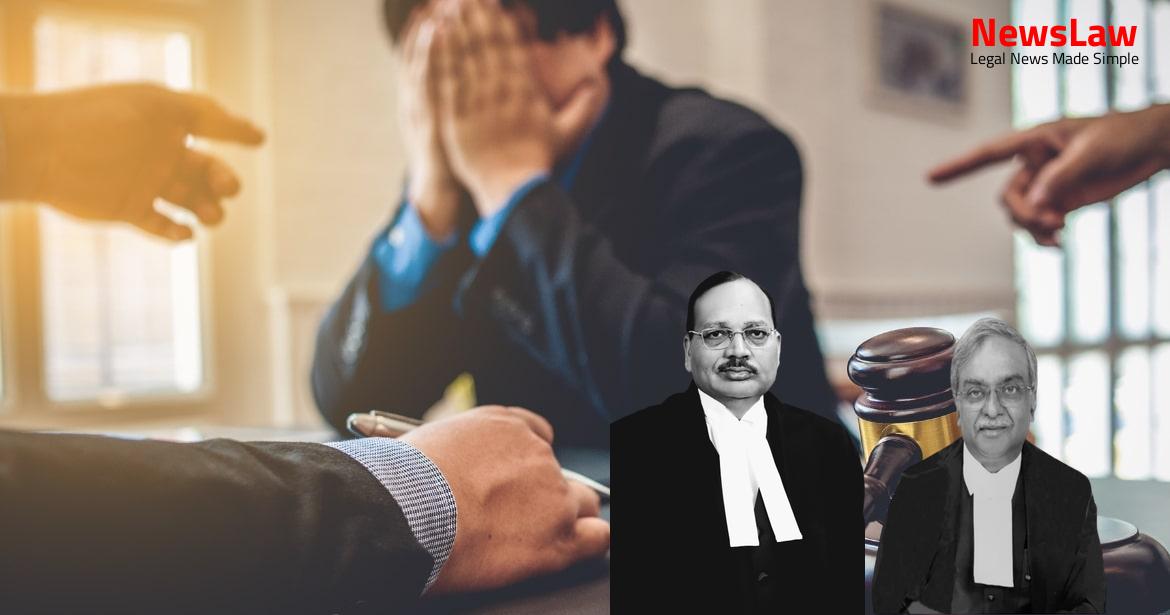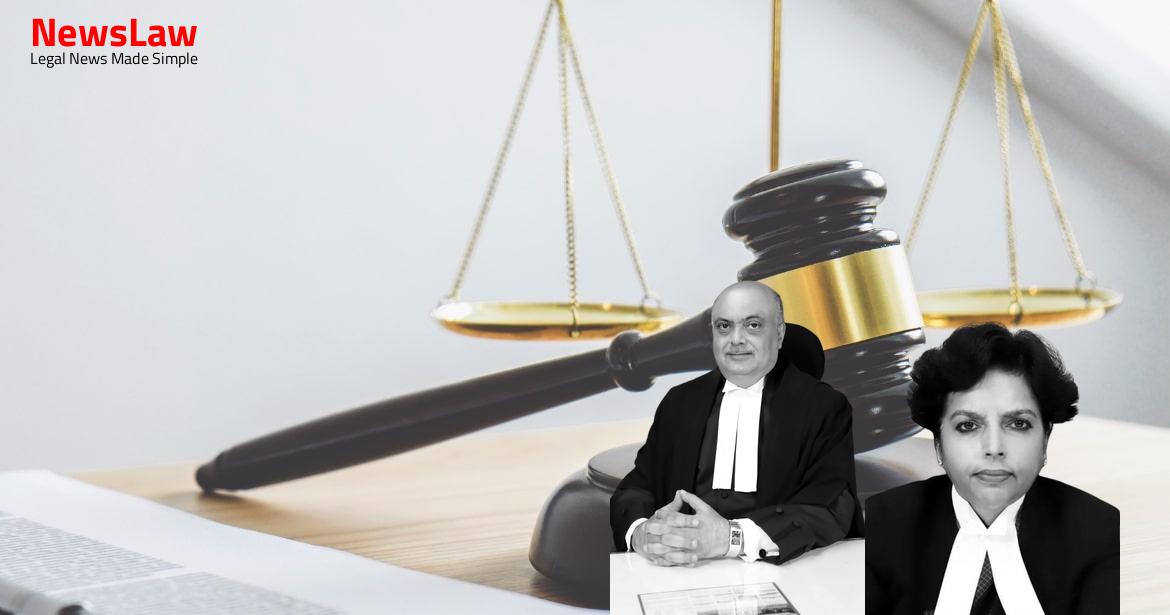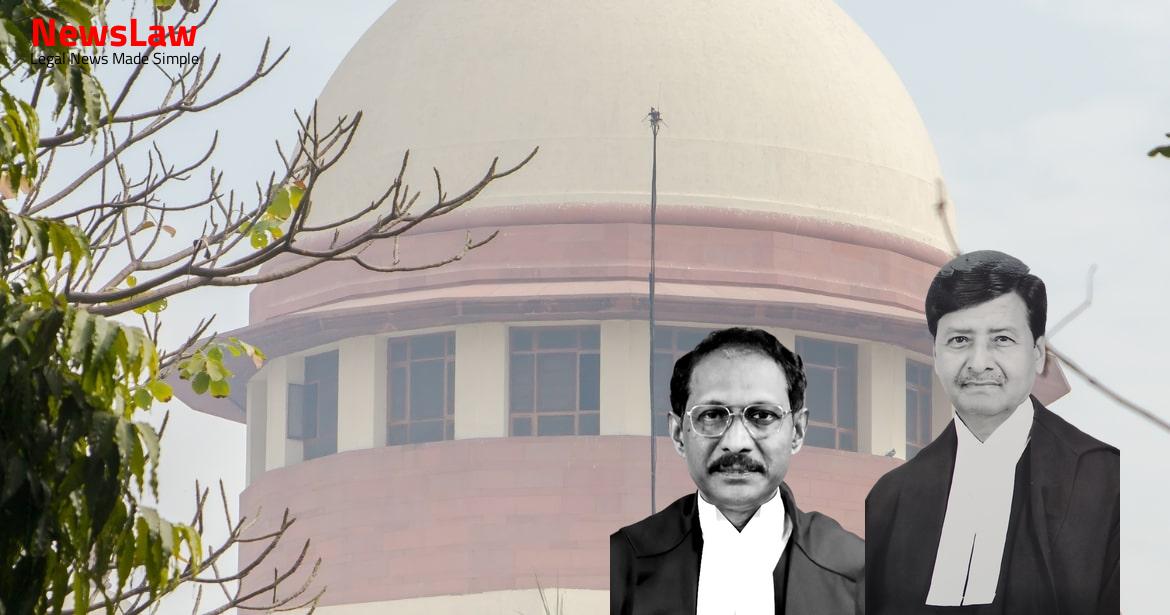The case under scrutiny underscores the significance of transparency and fairness in legal proceedings, with a particular focus on the court’s legal analysis. The complexities of legal professional privilege, the obligation of regulators to act fairly, and the principles of natural justice are at the forefront of this critical examination. Join us as we unravel the intricacies of legal ethics and the imperative need for transparency in judicial processes.
Facts
- A complaint was filed against RIL by S. Gurumurthy with SEBI alleging fraudulent allotment of 12 crore equity shares in 1994
- SEBI appointed an investigating officer to inquire into the complaint and a report was submitted in 2005
- SEBI chose not to take action on the complaint initially, but observed the need for an expert opinion on initiating criminal proceedings
- Legal Affairs Department noted in 2006 that the report did not reveal specific violations by RIL
- RIL was accused of funding share purchases by related entities leading to violations of various regulations
- RIL argued its transaction compliance with the law was approved by the Ministry of Corporate Affairs
- SEBI issued a show cause notice under SEBI Takeover Regulations following which Ministry of Corporate Affairs stated Section 77 of Companies Act was not violated
- RIL filed a settlement application in 2011 to resolve the issue from years ago
- SEBI denied sharing privileged opinion from a retired judge and other related documents requested by RIL
- SEBI’s complaint was later dismissed by SEBI Special Judge on the grounds of limitation, leading to the current appeal
- SEBI challenged the dismissal of the complaint by SEBI Special Court on grounds of limitation.
- High Court heard arguments on the Criminal Revision Application filed by SEBI (No 209 of 2020) on 28.03.2022.
- High Court stated that the prayer in the Interim Application cannot be considered without hearing the main Revision Application.
Also Read: Balancing Power and Transparency: Electoral Bonds Struck Down, Disclosure Mandated
Issue
- Whether this appeal is maintainable?
- Whether SEBI is required to disclose documents in the present set of proceedings?
Also Read: Recall of Resolution Plan Approval: Legal Analysis
Arguments
- SEBI’s selective disclosure of excerpts of Justice (Retd.) B.N. Srikrishna’s opinion is deemed as cherry-picking and unfair to the accused.
- SEBI’s disclosure of excerpts amounts to a waiver of litigation privilege claimed by SEBI.
- SEBI’s attempt to cherry-pick documents for disclosure raises concerns about fairness in trial proceedings.
- The appeal against the impugned adjournment order is considered not maintainable as it did not affect the accused’s rights.
- SEBI’s obligation to disclose documents under the Securities and Exchange Board of India (Prohibition of Fraudulent and Unfair Trade Practices Relating to Securities Market) Regulations is highlighted.
- The challenge to the maintainability of the appeal is deemed misconceived by the appellant’s counsel.
- SEBI, as a regulator, has a duty to disclose documents as per Article 21 of the Constitution, as established in previous case law.
- Mr. Datar, on behalf of the respondents, challenges the appeal’s maintainability citing that the impugned order is a mere adjournment order and no criminal complaint exists for document disclosure due to the trial court’s dismissal of SEBI’s complaint on the ground of delay.
- The High Court’s justification for adjourning the case after hearing the parties on multiple occasions is contested by Mr. Salve, representing the appellant.
- The dispute dates back to 1992-1994, with the initial complaint filed in 2002 before SEBI and allegedly closed in 2006 by the Legal Affairs Department’s note.
- A letter from the Ministry of Corporate Affairs dated 07.02.2012 also states that no violation of Section 77 of the Companies Act, 1956 was found.
- The appellant is prohibited from seeking documents in a criminal revision following the dismissal of the complaint based on limitation.
Analysis
- The Chartered Accountant has submitted a report to SEBI concerning irregularities in the allotment of Non-Convertible Debentures in 1994.
- Litigation privilege covers the opinion of the Retd. Judge and the report of the Chartered Accountant as per the Indian Evidence Act.
- SEBI initiated a criminal complaint based on actions dating back to 1992-1994, which have faced delays in litigation over three decades.
- The appellant sought documents through an interim application, which was objected to by SEBI on the grounds of rejection in a previous writ petition and claiming legal privilege.
- It was highlighted that certain limitations prescribed under Section 468 of CrPC can be overlooked in the interest of justice, emphasizing the need for effective adjudication.
- The Court expressed the importance of transparency, fairness, and accountability in legal proceedings, highlighting the principles of open justice.
- SEBI’s claim of non-disclosure based on past rejection by the High Court was not supported, emphasizing the accused-appellant’s right to seek document disclosure.
- The High Court’s postponement of adjudicating the interim application seeking document disclosure was criticized.
- SEBI’s initiation of criminal action without providing necessary reports and documents for the appellant’s defense was considered a violation of natural justice and transparency principles.
- It was stated that SEBI, as a regulator, should share all necessary documents for a clearer understanding of the issue, especially in cases involving large corporations with significant public interest.
- The judgment highlighted the need for SEBI to exercise caution before initiating criminal actions, considering unique circumstances and the potential economic consequences.
- Further, specific regulations and statutes were referenced regarding the confidentiality of information and the implications of settlement proceedings on document disclosure.
- The judgment emphasized the importance of a fair and principled exercise of legal processes, considering facts, circumstances, and the modalities of case initiation before deciding on aspects like condonation of delay.
- The aspect of settlement proceedings, confidentiality of information, and the obligations of both SEBI and the accused-appellant in seeking and presenting relevant documents were discussed.
- Various errors and oversight in the investigation, issuance of shares, and transactional details were pointed out, stressing the need for thorough scrutiny in legal proceedings.
- The need for proper assessment and understanding of the issue before proceeding with criminal complaints or legal actions was highlighted throughout the analysis.
- The duty of providing aid to parties for effective participation in proceedings due to the far-reaching repercussions of a court verdict on individuals
- Transparency and accountability are crucial for holding investigative agencies and judicial institutions accountable
- Opaqueness leads to prejudice, bias, and impunity, which are against transparency
- Fairness and transparency in adjudicatory proceedings are fundamental for open justice
- Principles of fairness and transparency are crucial for a democratic country grounded in the Rule of Law
- Transparency is essential in the judicial process to avoid prejudice and partiality
- The principle of providing access to all relevant material for a fair trial is highlighted in legal cases like In Nea Karteria Maritime Co Ltd v. Atlantic and Great Lakes Steamship Corporation
- Legal advice privilege and litigation privilege are important components of legal proceedings
- Legal professional privilege is classified into legal advice privilege and litigation privilege in England
- Adjudicatory authorities are required to record reasons for every judgment or order they pass
- The duty of transparency in adjudicatory processes goes beyond providing a reasoned order
- Opaqueness is detrimental to transparency and fairness in proceedings
- SEBI’s duty as a regulator is to act fairly in conducting proceedings
- Principles of natural justice require that parties have an opportunity to defend themselves before condemnation
- Disclosure of information is essential for reliability, fair trial, transparency, and accountability
- SEBI’s duty to act fairly is tied to the principles of natural justice
- Principles of natural justice cannot be rigidly defined and must cater to the circumstances of each case
- Legal professional privilege categories in England include legal advice privilege and litigation privilege
- Courts in England differentiate between adversarial and investigative/inquisitorial litigation for the application of legal privileges
- Regulators have a substantive duty to show fairness in cooperation and deference to the public
- Denying access to information undermines transparency in the judicial process and creates information asymmetry
- The Ld. Judge erred in failing to appreciate the ratio laid down by the Hon’ble Supreme Court in Fiona Shrikhande Versus State of Maharashtra case
- At the complaint stage, the Magistrate is concerned with the allegations made out in the complaint only and has to prima facie satisfy whether there are sufficient grounds to proceed against the accused
- There were more than sufficient grounds in the present case for the Ld. Judge to prima-facie be satisfied of the offence and issue process
- Courts have the discretion to take cognizance of an offence beyond the usual period of limitation if there is a valid explanation for the delay or if it is in the interest of justice.
- Section 129 of the Evidence Act protects confidential communications between a person and their legal adviser from being disclosed in court, unless the person voluntarily becomes a witness.
- The provision in Section 129 is based on long-standing principles of common law.
- SEBI cannot claim privilege over certain parts of documents and agree to disclose others, as it amounts to cherry-picking
- Selective disclosure is not permissible in law
- This is a breach of consistency and fairness in disclosing information
Decision
- SEBI filed a complaint in the Court of SEBI Special Judge, Mumbai on 16.07.2020.
- The complaint requested the court to issue process against the accused for various violations under SEBI Act and Companies Act.
- The High Court dismissed a petition related to this matter on 04.02.2019.
- SEBI declined a request for certain reports and materials related to the case.
- Appellant challenged SEBI’s decision in the High Court of Bombay through a Writ Petition.
Case Title: RELIANCE INDUSTRIES LIMITED Vs. SECURITIES AND EXCHANGE BOARD OF INDIA (2022 INSC 796)
Case Number: Crl.A. No.-001167-001167 / 2022



